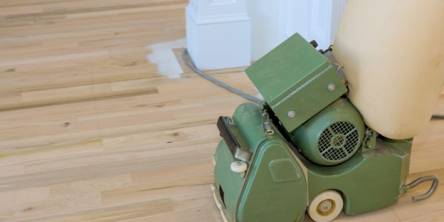3 Key Steps in Choosing a Freestanding Bath

Freestanding tubs command attention when installed in any bathroom. It’s an interior design favourite because of its sleek and modern appeal. If you want to renovate your bathroom and install a freestanding tub, there are several things you need to consider. Let’s break down the essential steps in choosing the right design, size, and material to suit your taste and requirements.
Choosing the right tub size
Size is a critical consideration because a freestanding bath will take up space. Before browsing through your options, make sure to measure the area where you want the tub installed carefully. Take note of the height, width, and length to ensure that there’s enough room to move around once the tub is in place. In addition to the tub, you’ll also have to think about plumbing and other accessories needed to complete the décor.
Don’t forget to measure the hallway and your doorway so that the fixture easily fits when delivered. In case the bathroom is on the upper floor of your house, you may need flooring reinforcement if the tub is too heavy.
Choosing the tub style
The tub’s purpose will help you choose the right style and depth. In general, the following styles are the most commonly available today:
- Double-ended tub. This type of tub has two rounded ends, which will allow you to bathe from either side. However, neither of the ends are raised, but still gently sloped for soaking comfort. In this style of tub, the tap and drain are typically in the middle, and you can choose from a variety of sizes that can even fit two bathers at the same time.
- Single slipper. The slightly raised end of a single slipper tub is perfect for lounging and long relaxing soaks. This type of freestanding tub also comes in a variety of sizes but is usually chosen for smaller bathrooms because of its compact design.
- Clawfoot tub. This classic style is still popular today because of its traditional design. You can get a clawfoot tub with a single slipper, double-ended, or single-ended design.
- Single-ended. This style is more traditional than others, where one end is rounded, and the other features taps and plumbing.
Other styles include double slipper, Japanese lounging, and skirted freestanding tubs. The design matters not only for the purpose but also for the available space and plumbing location.
Choosing a bathtub material
After selecting a style, the next step is to select tub material. This decision is vital because different materials match different aesthetics as well. Also, if you’re on a budget, the material will have a significant effect on the cost of the tub. Nowadays, most tubs are made using acrylic. It’s affordable, durable, and relatively lightweight. If you’re into the more traditional look, cast iron tubs might be the right choice. However, cast iron is heavy and may not be the right fit for upper floor bathrooms. For an undeniable wow factor, a stone tub is an excellent choice, but be ready to splurge a bit if you choose this material.
Personalising the design
After selecting the basic features of a freestanding tub, you can personalize the style by adding accessories. For example, a caddy or a rack placed near the bath will provide convenience in storing bathing essentials. You can also use the shelf for candles or a glass of wine while enjoying a relaxing soak.
If you want to make the tub multi-functional, you can convert it into a traditional shower; choose a tub that will allow you to drill inside to install a shower. Another excellent idea to personalize your freestanding tub is installing a massage system with air jets that give the tub a “Jacuzzi-like” function.
Similar Articles
Wooden floors have long been the subject of admiration for their classic beauty, natural warmth, and strength.
When it comes to giving your home a fresh coat of paint, most homeowners focus on choosing the perfect color and finish.
The holiday season transforms neighbourhoods into glowing wonderlands, but today's homeowners are moving beyond the traditional approach of simply stringing lights wherever they fit.
City homes face a constant challenge around outdoor space. Gardens are small or nonexistent, balconies are narrow, and any outdoor area feels precious.
Anyone who's worked in a commercial kitchen knows they operate with an efficiency that home kitchens rarely match.
When you want to transform your home with a complete makeover, you must find the best ways to save money. Let's check some cost-saving tips for renovating.
Handrails are one of the few things that merge safety, fashion, and structural importance in a home most naturally when the home is being either designed or renovated.
Cabinets play a vital role in any home, combining function, organization, and aesthetic appeal. Whether in the kitchen, bathroom, or living area, cabinetry defines the layout, storage capacity, and overall look of a space.
Every homeowner eventually faces the question: Should I repair or replace my roof entirely? It’s not always an easy decision.









